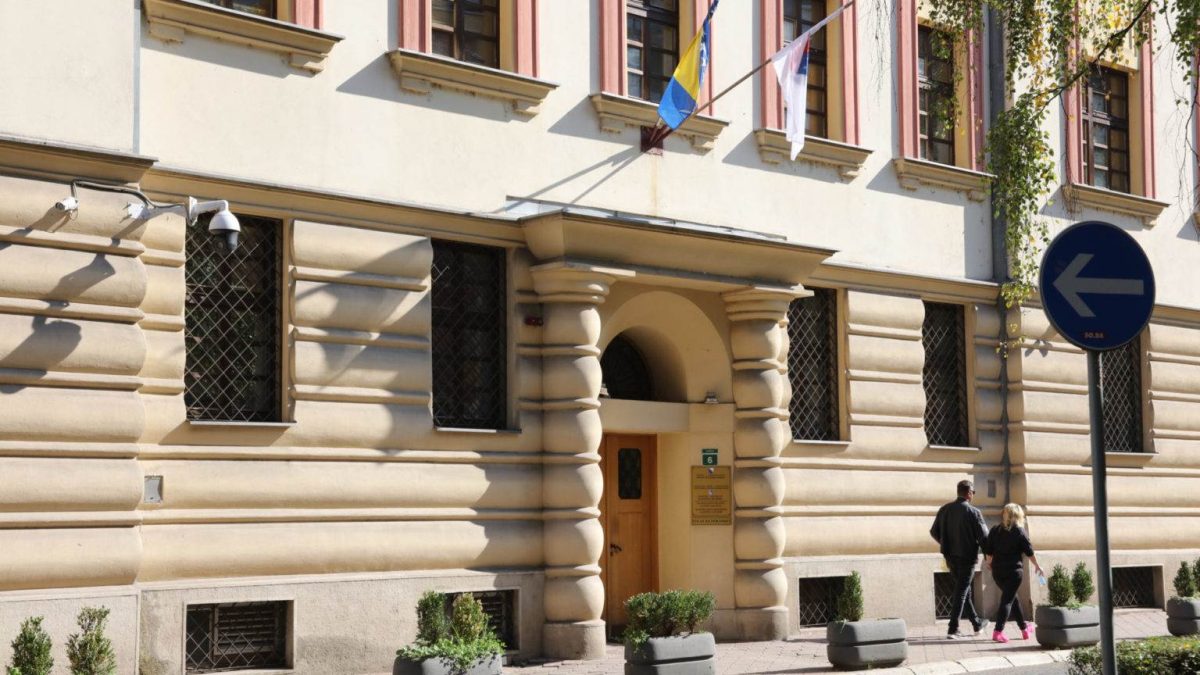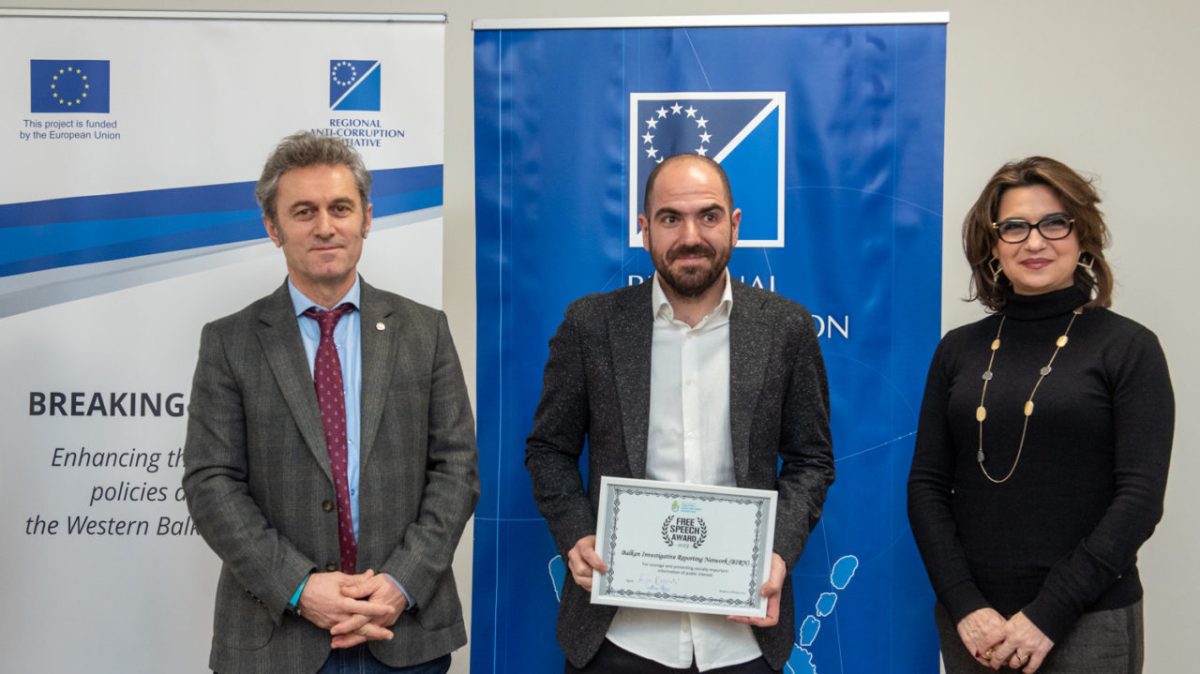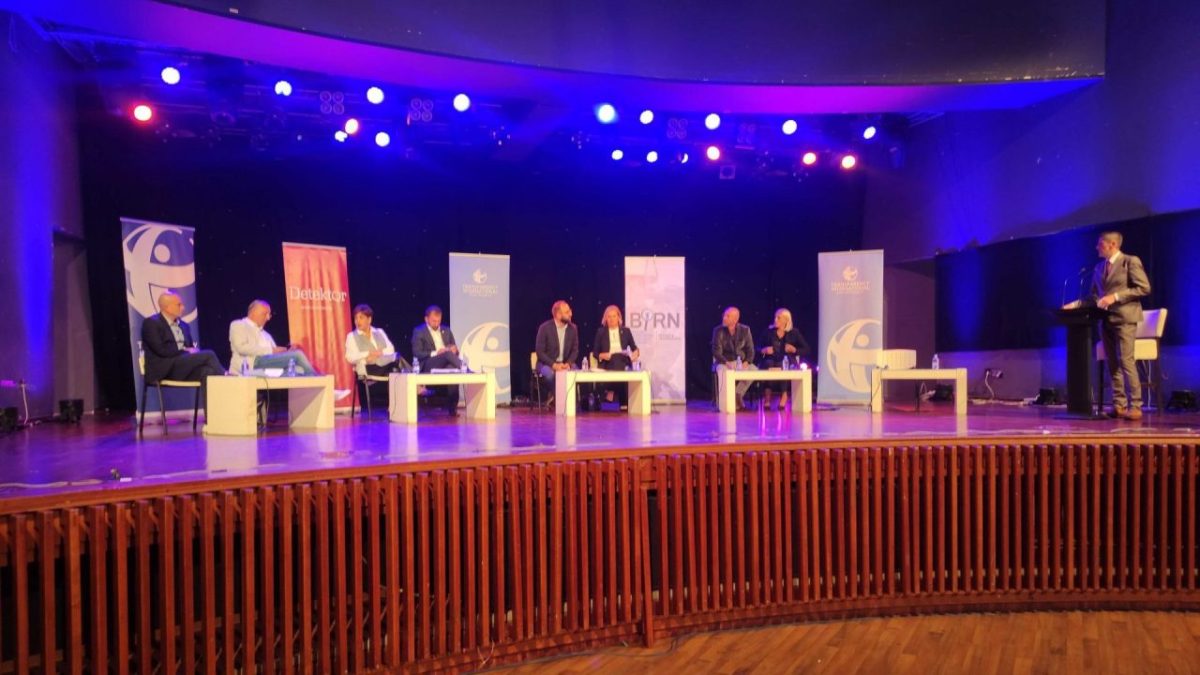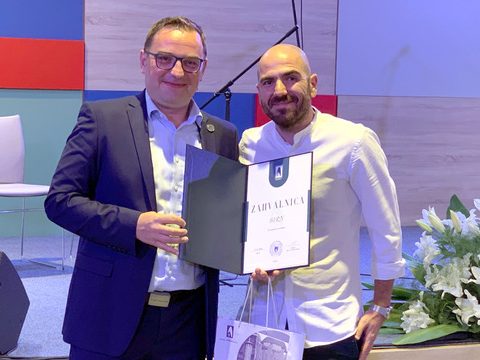BIRN Bosnia and Herzegovina presented teachers, experts and the media with a database of judicially determined facts about the Bosnian 1992-5 war containing information from all verdicts passed down by the Hague war crimes tribunal concerning crimes committed, video testimonials by survivors and victims adapted to students, as well as class preparation materials with activities that help teachers conduct classes on topics from the recent past. Participants in Sarajevo recognized the database as a tool for fighting revisionism, denial and education at the service of divisions.
A round table on “How to teach about judicially determined facts about the war in Bosnia – challenges and perspective” was opened by BIRN Bosnia and Herzegovina executive director Denis Dzidic.
“The idea was to have a single database, on the basis of Hague Tribunal verdicts, where we would collect all judicially determined facts related to the war in Boasnia and, on that basis and with the help of Professor Melisa Foric-Plasto, make a class preparation document with the help of which judicially determined facts can be used for educational purposes,” he said.
According to Dzidic, the goal of the database is to create fact-based sources of information that can be used for educational and information purposes, which will contribute to countering disinformation and improving media literacy.
“We hope to update the database to include verdicts passed down by the Court of Bosnia and Herzegovina, as well as local and regional courts, in the upcoming period,” said Dzidic, pointing out that the goal of this round table, besides presenting the database itself, was also to hear from the professional public how to make the database official trough institutions so it could reach the school content.
The database of judicially determined facts is a project of the Balkan Investigative Reporting Network in Bosnia and Herzegovina, which has been realized with the support of the United Nations Democracy Fund from April 2021 to March 2023. Agnes Picod of the UN in Bosnia emphasized that the project was a topic of importance for the UN in the field of coming to terms with the past and education.
“It has the potential to educate about judicially determined facts, as a tool to generate understanding and compassion. We hope it will find its way through the education system in Bosnia, but I see the potential of this database as a pedagogical tool also outside the school system,” she said, adding that the database was a very important tool for countering revisionism.
The two-year work on the database was presented to the round table participants by Haris Rovcanin. He explained that over the course of nearly two years, material was collected from Hague verdicts, containing judicially determined facts which form the basis of this database and divided into ten regions – Sarajevo and its surroundings, Eastern Herzegovina, Zenica region, Central Bosnia, Doboj-Posavina region, Eastern Bosnia, Srebrenica, Herzegovina region, Krajina and Bijeljina-Zvornik region.
Rovcanin explained that the work on the database required having to analyze hundreds of thousands of pages of Hague verdicts, some containing several volumes. He most often used first-instance verdicts for the database because they were the ones determining the factual status. Some regions, he said, concern crimes against all three peoples in Bosnia.
“The majority of Hague verdicts concerned crimes committed in Prijedor, followed by Eastern Bosnia and Krajina. The database contains more than 2,000 facts from 50 verdicts,” he said.
BIRN BiH also published ten short documentaries for each of the regions, which, besides conclusions from verdicts and incidents, also contain personal testimonials by witnesses, victims and survivors, which is also a way of offering support in the fight against denial and minimization of crimes and adjudicated facts.
During the round table, a condensed version of one of the videos from the database was shown, while Rovcanin said that BIRN Bosnia’s journalistic team visited some places for the first time since the end of the war and talked to numerous witnesses, some of whom also testified in the Hague.
Participants in a panel titled “How to help history teachers teach about the war in Bosnia” said that the educational system was in the jaws of politics, education was at the service of divisions, but at the personal level, educational workers wanted to work, so a tool such as this database of judicially determined facts would be an excellent help in their work.
“We have all failed to come to terms with the past – as individuals, and as the society – and that has also happened in education,” said Skolegium editor Rubina Cengic, adding that the database was a useful tool for students and teachers but also for journalists who could use it for their stores.
Branko Todorovic, director of the Helsinki Committee for Human Rights Banja Luka, said he database summarized very clear messages and judicially determined facts, which represented its intrinsic value.
“What BIRN Bosnia has made is a very objective and accessible tool,” he said, adding that there might be the best possible history textbook, but there were still professors and teachers interpreting content the way they thought it should be done.
Professor Melisa Foric-Plasto, who made a 200-page document for this project, containing class preparations with learning activities and concrete examples of events from the past war, explained how her part of the task went, also pointing out that three workshops with teachers were held in Sarajevo, Tuzla and Mostar with the help of those class preparation materials.
She drew attention to the fact that official terminology determined by courts should be used in the curriculum.
“It is really good to have a single database in which you can check the facts and terminology at any given moment,” she said.
The participants emphasized the need for education of teachers and professors, as well as involvement of psychologists in working with them.
During a panel discussion on “Informal educational tools as part of the official curriculum – opportunities and challenges”, representatives of education ministries in Bosnia said they would support the inclusion of the database of judicially determined facts into the official content.
“We shall recommend our teachers to use the material, primarily in the ninth grades, as an educational tool,” said Elmir Tukic of the Ministry of Education and Science of Tuzla Canton.
He added that the Ministry wanted to empower teachers to use other materials for education purposes, while participants in the round table also pointed to dangerous materials containing incorrect information which can be found on the Internet.
Azerina Muminovic, of the Ministry for Education of Sarajevo Canton, pointed to the importance of the role of teachers and their education, but also the fact that they are under constant pressure.
“It is very important to educate teachers about the use of the database and I am happy that you have done such an important thing,” she said, adding that she hoped that the education of history teachers would be agreed upon and realized in future with the help of BIRN Bosnia.
Bojana Dujkovic Blagojevic, of EuroClio HIP Bosnia, described the database as a pioneering step, among other things, due to the extensive archive, as well as the multimedia content.
She added that she supported the autonomy of teachers, but had witnessed a lot of self-censorship and fear among teachers in Bosnia. She considers that teachers are making a mistake when telling their students to find something on their own.
“Students, but also the majority of teachers, lack critical reading skills,” she said, pointing to the issue of relevant information sources.
You can view the database of judicially determined facts on this link.









